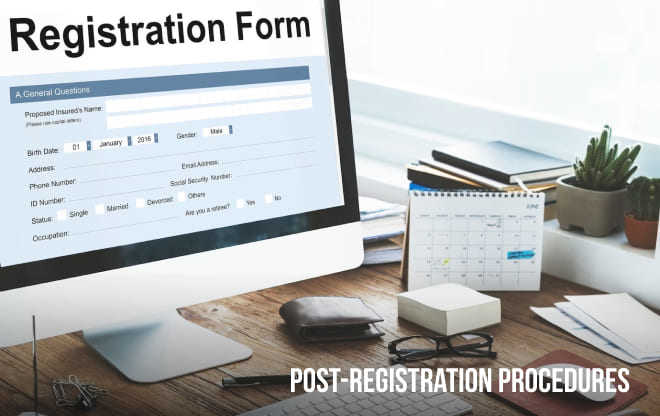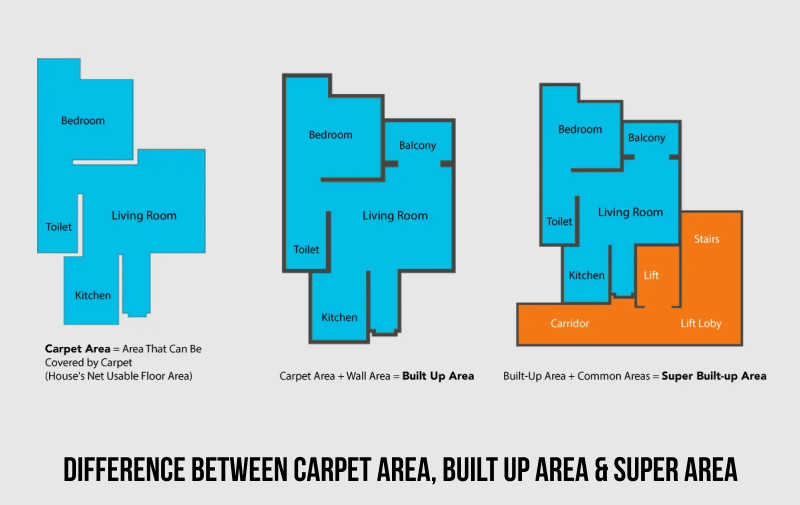Chennai Property Registration: A Comprehensive How-To Guide
Buying a home requires a lot of planning, looking for the ideal location, and making the decision to buy. After doing all these, your next step would be organizing documentation and registering the property. The property and apartment registration process in Tamil Nadu is important however it is not very complicated. Let’s read this blog to know everything about the property registration process and stamp duty payment.
Why property registration is important when buying a property?
Property registration in Tamil Nadu is important because of these reasons:
- Registration of property means getting legitimate ownership from the government. In case of disputes and misunderstandings, you can use the registered documents.
- If someone claims ownership of the property, the registration documents can help resolve disputes.
- The registration document is an undeniable piece of evidence in court.
- In addition to this, it is also important as a registered property to keep trespassers away from the property.
- Property owners will also get bank loans as the bank accepts registered properties as collateral. So, the process of registration makes it easy for you to get loans.
- In the future, selling the property will be a lot easier because your property is duly registered. The registration documents show transparency and legitimacy.
- Not just this, a registered property also draws more potential buyers.
- If the property is registered then it becomes easy to transfer the property.
Documents Required for Property Registration in Tamil Nadu
For starting the Chennai registration process in Tamil Nadu, it is important to keep all the documents handy. Here are the land registration documents that you’ll require in Tamil Nadu–
- EC or Encumbrance Certificate – this certificate indicates that your property doesn’t have any legal or monetary liabilities.
- PAN Card
- Pattadar passbook
- No Objection Certificate (NOC)
- Stamp duty receipt
- Identity proof of the seller
- Two witnesses and their identity proofs
- Passport-sized photographs of all the parties
- Sale deed
- Power of attorney, if there’s any
- In case of a resale property, Utility, and municipal tax bills
Once you have all the documents with you, you can go for the property registration process.
Tamil Nadu Property Registration Procedure
One common query of every property owner is- How to register a property in Chennai? The property registration process in Chennai is offline but the property owners need to pay the stamp duty via online methods.
For the stamp duty payment online, the homebuyer needs to visit the Stock Holding Corporation of India Limited (SHCIL) portal. Be it urban and rural areas, the stamp duty and registration charges in Chennai are the same for women and men homebuyers.
Online process of paying stamp duty in Chennai Tamil Nadu
Let’s now see how to pay stamp duty online-
- First of all, visit the official website of Stock Holding Corporation of India Limited (SHCIL)
- After this, you need to choose Tamil Nadu and open the drop-down menu to get the ‘States list’
- Now, the property owner needs to fill out the stamp duty application form and then download it.
- Once you’re done with this, go to the Authorised Collection Centre (ACC) to get the e-stamp certificate. You’ll get the certificate on the payment of the stamp duty. Still have confusion-where to pay stamp duty and registration charges in Chennai. Homebuyers can pay the stamp duty and registration charges to the sub-registrar. Make sure it is the registrar’s office of the jurisdiction where you bought the property.
- Now, you just keep the stamp duty receipt for the registration process
Offline Method the stamp duty for registration
Apart from the online method, you can also choose the offline option in which you will have to visit the registrar’s office. Ask them to calculate the stamp duty for the registration process.

The officials will verify the documents and then you will have to pay the fees by filling out a challan. After this, you can make a stamp duty payment. After paying the stamp duty, the sale deed will be signed by both parties in the presence of the registrar’s office staff.
Property registration charges in Chennai
No matter if your property is in a rural or urban place. Also, there will be no impact of new property, old or resale property on the property registration fees. The land or apartment registration charges in Chennai will be 1% of the market value. The government determines the property’s market value which is used as a benchmark.
Calculation of Stamp Duty and House Registration Charges in Chennai
The Calculation of Chennai’s stamp duty and registration charges can also be done using online calculators. Calculators can easily calculate what amount you need to pay for registration and stamp duty.
If you’ve bought a property of 50 Lakh, then it,
Payable stamp duty = 50,00,000 x 7% = 3,50,000
Payable registration charges = 50,00,000 x 4% = 2,00,000
Thus, the property owner will have to pay a total of Rs 5,50,000 to register their property worth 50 Lakh.
The registration and stamp duty fees will be the same for men, women, and joint property buyers. So, they are not eligible for any fee reductions.
| Category | Any Fee Reductions | Stamp Duty Fees | Registration Fee | Total Fees |
| Man Property Owner | No | 7% of the market value of the property | 4% of the market value of the property | 11% of the market value of the property |
| Woman Property Owner | No | 7% of the market value of the property | 4% of the market value of the property | 11% of the market value of the property |
| Joint Owners | No | 7% of the market value of the property | 4% of the market value of the property | 11% of the market value of the property |
Tax benefits of paying stamp duty in Chennai
Yes, a property owner can claim a tax deduction on stamp duty and registration charges. So, they will get the tax benefits of paying stamp duty in Chennai. They can claim this deduction under section 80C of the Income Tax Act 1961. If the property is under the name of a joint holder then both of them can claim the deduction on the stamp duty. The claim can be up to a maximum amount of Rs 1.5 lakhs.
Conclusion
Chennai’s property registration procedure is similar to that in other states of the country. Regardless of whether it’s a new or resale property, property registration is important because it establishes the buyer as the legal owner. Property and land registration fees in Tamil Nadu consist of 4% of the property’s market value.







